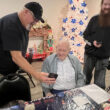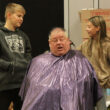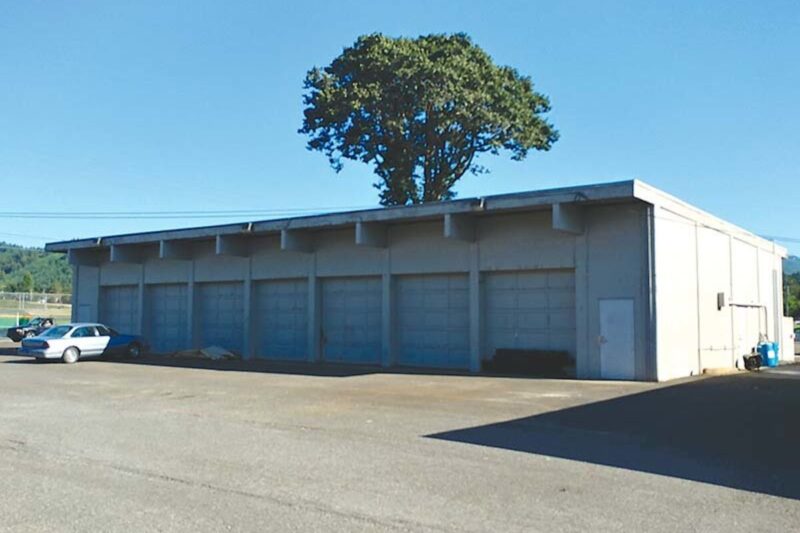Sean C. Morgan
Of The New Era
Sweet Home High School will not have auto shop on its class schedule this school year.
Principal Ralph Brown said that the program has not been year-round for some time, and wood shop teacher Dustin Nichol had been splitting time to teach it during one trimester the past couple of years, which made it difficult to get and keep enough students in the program.
The school has been putting its effort into other career and technical education programs, Brown said. Among them, the school introduced a full natural resources program last year – along with an engineering, design and marketing program.
The school didn’t have a natural resources program, he said, and now it’s got the program and a new teacher.
“We’d like to open auto shop as well,” he said. “We’re trying to build the programs we have stronger. In a school our size, we can’t offer everything.
“It’s not like we’re going to board up the auto shop. The hope is with additional funding, we’re still looking at this opportunity. For right now, we won’t be able to offer it this year.”
“I’d hate to see it go away,” said Shawn Anderson, who credits the auto and metal shops for his graduation. Anderson owns and operates Anderson Auto Body. “I’d hate to see them shut it down. I understand part of the problem for the district. They’ve got one guy with too much on their shoulders.”
Brown said that Nichol has in the past juggled wood shop, auto shop and the Forestry Club, which grew into the natural resources program. Nichol also is the head football coach.
That’s a lot of work for one teacher, Brown said. At the same time, having auto shop for just one trimester means it cannot get the “justice it needs.”
It’s a “depth-of-program” issue, said Supt. Tom Yahraes.
Brown said he would rather see Nichol concentrating his work in woods while the school builds a better auto shop program.
If the school had an opportunity to have auto shop and a quality teacher, he would love to have it on the schedule, he said. “We’d love it full force, full time. If auto’s good, I love it.”
He would love to see more CTE classes for Sweet Home, Brown said. For example, “I’d love an aquaculture raising tilapia. Cool stuff.”
The district needs a teacher in the auto shop, Anderson said, but the criteria the district needs don’t match up to people in the industry. The biggest obstacle is that people working in the industry don’t go to school to be teachers.
Anderson said he would have to take a pay cut to do it, for example – and that would require additional education.
“Our trades don’t attract suits and ties,” Anderson said, but they have their place in the world right now, with trades of all kinds dealing with labor shortages.
At the same time, if the district needed an English or history teacher, it would find the money to do it, Anderson said.
“That’s frustrating. They have a unique opportunity that no other classroom in school has. They could turn a profit.”
While some might object that it would take business from other businesses, Anderson said, any business worrying about competition from high school students is already in trouble.
“In no way are we eliminating autos from our curriculum,” Yahraes said. “This is temporary, and the school needs to develop a short- and long-term plan for the auto shop program.”
Possible funding may help, he said, but “we’re going to figure out how to reinterpret our autos program and invest in an autos program wisely.
“We know that autos is an engaging class. It brings students to school. Meets them at that interest level.”
The question is how to get the best quality program, Brown said.
That means a one-year curriculum that creates an industries-level pathway to jobs and trade schools, Yahraes said.
“We are going to be able to get autos back,” he said, though he acknowledged that he doesn’t know when or what it will look like yet.
“Kids will not leave our high school without the chance to experience autos. We’ve got to plan this out. We’ve got to be smart about this.”
That chance to experience autos was critically important to Anderson.
“When I was in school, I wasn’t a great student,” Anderson said. If it weren’t for those two classes, auto shop and metal shop, I promise you, I wouldn’t have graduated.”
He rebuilt his first Model T there, and he still owns it today.
Because of those classes, he opened his own business 20 years ago and continues to operate it today.
“I feel like I owe that to those two classes,” Anderson said. “I’ve got three or four of my classmates here working with me. That’s probably three to four of us that wouldn’t have graduated” and found success after graduation.
Because Anderson knew what he wanted to do with his life by age 12 and the shop classes kept that passion alive and Anderson in school, former teachers Tim Boatwright and Dave Martin were able to connect the dots between the trades and traditional subjects, including math, history and English.
Anderson said he can’t paint a car without using fractions, and historical context is useful working around cars. English and communication skills are critical for him to advocate on behalf of the auto shop and metal shop programs.
When it comes to customer service, no one wants to be in his shop, Anderson said. “We have to be able to take their bad day and make them feel good about spending money they don’t want to spend.”
Those teachers, who may not even remember him, took extra time and were able to make a difference with a stubborn kid, Anderson said.
He said he didn’t appreciate until about a decade out of high school, but Boatwright took the time to say, “you’re going to need this, kid.”





